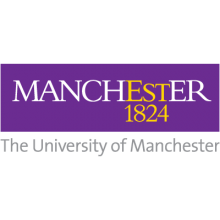Delays in processing visas has made the US a “no-go zone” for international students seeking to go to America for a short-term visit, the head of an African business school has said.
Speaking to Times Higher Education at THE’s World Academic Summit at the University of Manchester, Justice Bawole, dean of the University of Ghana Business School, said unfriendly visa processing had made it almost impossible to take students to the US for visits lasting a few weeks.
“We didn’t have these challenges until Covid but it is now extremely hard to get an interview – back in 2021, we were asking for an interview but only being given appointments in 2023,” said Professor Bawole, who said study visits to the US fully funded by local businesses had been unable to go ahead.
“We had the money for these trips but we’ve had to give the resources back,” said Professor Bawole, who rued the breakdown in visa processing as such trips often led to longer study stints, including postgraduate and doctoral study.
“These trips can become ‘sticky’ – people go abroad and think I could definitely come back for a longer stay,” he said.
Professor Bawole, who received a PhD from Manchester’s Global Development Unit a decade ago, said his students were now travelling to Berlin and Manchester to experience a Western university instead.
“They want an experience - we visit local industry, the Henley Business School – and then all of them, without exception, come home. Most students don’t actually want to leave Ghana but want an educational experience abroad – we explain that if you disappear and enter the labour market illegally, then this is not a life,” he said.
On the relative attractiveness of the UK as a destination for overseas study, Professor Bawole said it had “flickered off the radar of students in Ghana” but had now returned as an option following the return of the two-year post-study work visa in 2020. “The possibility for working in the UK after graduation is always marketed by universities as part of why students should come to study,” he said.
Speaking at THE’s event on 8 October, however, Professor Bawole said the UK should be wary about returning to “very stringent rules” which existed when he was a student at Manchester, which required him to take his passport to the university each week to check he had not absconded.
“Our supervisors were also reporting our attendance but we still had to report each week to the academic unit,” said Professor Bawole, who eventually led a delegation to meet Nancy Rothwell, then vice-chancellor, about the reporting rules.
“We argued that Britain was on the forefront of abolishing slavery and its universities always marketed themselves as culturally diverse, yet, despite reaching the academic requirements of other students, international students were being treated like slaves,” he said.
“They were effectively telling us how we could move and where we could go,” added Professor Bawole.
Eventually weekly reporting was reduced to monthly checks before the periodical checks “fizzled out completely”, he added.
African universities should not shy away from having conversations about the possibility of students absconding during their studies but this was still very rare, said Professor Bawole.
“We have to have these conversations but, as far as we are concerned, all of our students have always gone back,” he said.
Register to continue
Why register?
- Registration is free and only takes a moment
- Once registered, you can read 3 articles a month
- Sign up for our newsletter
Subscribe
Or subscribe for unlimited access to:
- Unlimited access to news, views, insights & reviews
- Digital editions
- Digital access to THE’s university and college rankings analysis
Already registered or a current subscriber? Login











